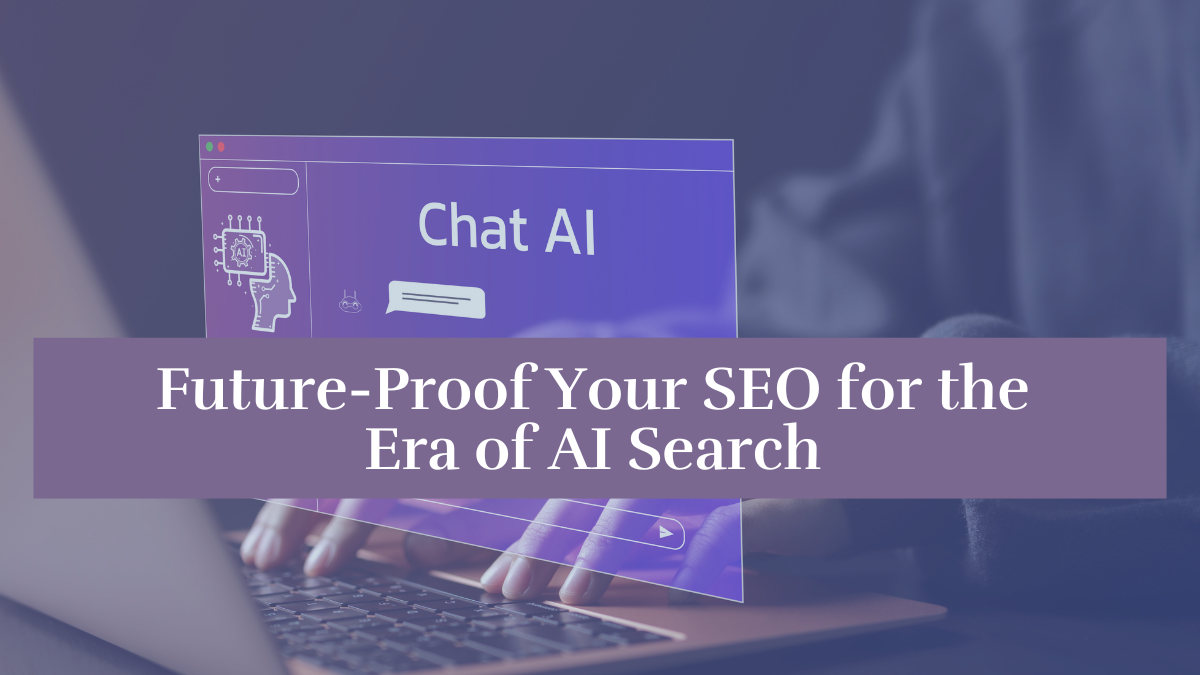Search isn’t what it used to be. With AI tools like Google’s AI Overviews and ChatGPT reshaping how people discover information, publishers and businesses need to rethink how they show up in search. The fundamentals of SEO still matter, but the way search engines deliver results is evolving, making it more important than ever to future-proof your SEO for AI search.
What Is SEO? (The Art and Science of Being Found)
Search Engine Optimization, or SEO, is how people find your content in search engines like Google or Bing. It’s the foundation of digital visibility.
SEO is both an art (building trust, loyalty, and brand reputation) and a science (using keywords, meta tags, and site structure). And while many people think it’s about chasing the #1 ranking, SEO is really about long-term goals:
- Building loyalty
- Supporting your brand
- Driving visibility without constant ad spend
Unlike paid search, SEO isn’t “pay-to-play.” Done right, it earns you visibility and traffic for the long haul.
Why SEO Matters Even More in 2025
Even in the age of AI-driven search, billions of queries still run through Google every day — and 49% of people still click traditional links, even when an AI summary appears.
SEO continues to support:
- Organic traffic growth
- Audience development
- Advertiser success
Search engines haven’t replaced SEO. They’ve simply raised the bar.
What Is GEO (Generative Engine Optimization)?
Generative Engine Optimization is SEO made smarter for AI search. Instead of only optimizing for traditional blue links, GEO ensures your content is structured so AI-powered tools can quote, cite, and summarize it.
AI search engines like Google’s AI Overviews, Perplexity.ai, Bing Copilot, and even ChatGPT with browsing all pull from publisher content. GEO helps your site appear in these AI answers — not just the old-school results page.
Think of it as the next layer on top of your SEO foundation.
How the Search Landscape Is Changing
Here’s the reality:
- Google’s AI Overviews now show summaries at the very top of search results.
- Your site might not appear unless it’s referenced in the summary.
- Summaries often include definitions, bulleted lists, images, and a few source links.
Already, 58% of U.S. adults say they’ve seen AI-generated summaries in their search results (eMarketer). The takeaway? If you’re not optimized for this new format, you risk invisibility.
7 Tips to Improve Your Site for GEO
The good news: you don’t need a full site overhaul. Small tweaks can make a big difference.
- Answer Questions Clearly
- Add Q&A-style content: “What is…?”, “How does…?”
- Put the answer in the first paragraph.
- Use Lists & Structure
- Break content into bullet points and short paragraphs.
- Use headers (H1, H2, H3) properly.
- Refresh Old Content
- Update blog posts and service pages.
- Add local or timely info where relevant.
- Add Unique Visuals
- Use original images, graphics, or videos.
- Avoid generic stock photos.
- Speed Up Your Site
- Compress large files.
- Optimize for mobile.
- Use Schema Markup
- Add schema for FAQs, articles, and organization info.
- Test your site with Google’s Rich Results tool.
- Get Mentioned Off-Site
- Collect customer reviews.
Earn press mentions or backlinks. AI tools love structured, clear, and trustworthy content.
How January Spring Helps Publishers
Future-proofing SEO can feel overwhelming, but you don’t have to tackle it alone. At January Spring, we help publishers:
- Update structure, tags, and formatting for AI readiness
- Monitor traffic and visibility shifts as AI evolves
- Train sales teams to speak confidently about SEO + GEO
- Help advertisers adapt their strategies for long-term visibility
Selling SEO + GEO to Advertisers
For advertisers, the pitch is simple:
“We help your business show up where people are searching — even in AI answers.”
SEO + GEO builds:
- Long-term trust
- More qualified leads
- Visibility without paying for every click
It’s modern SEO, built for today’s search experience.
Common Questions & Objections
- “Is SEO even worth it with AI?”
Yes. AI needs structured content to summarize. Without SEO, you’re invisible. - “Isn’t SEO just for big brands?”
No, niche expertise and local content give smaller publishers an advantage. - “We already did SEO. Are we done?”
SEO is never “done.” Content must stay fresh, structured, and aligned with how AI reads it. - “Why not just run ads instead?”
Paid Search = quick wins.
SEO + GEO = sustainable visibility and brand trust.
Let’s Future-Proof Your SEO — Together
AI search is here to stay, but so is SEO. The publishers and advertisers who adapt now will be the ones showing up tomorrow.
Want to get started? Email mac@januaryspring.com to see how you can upgrade your SEO in the era of AI.

